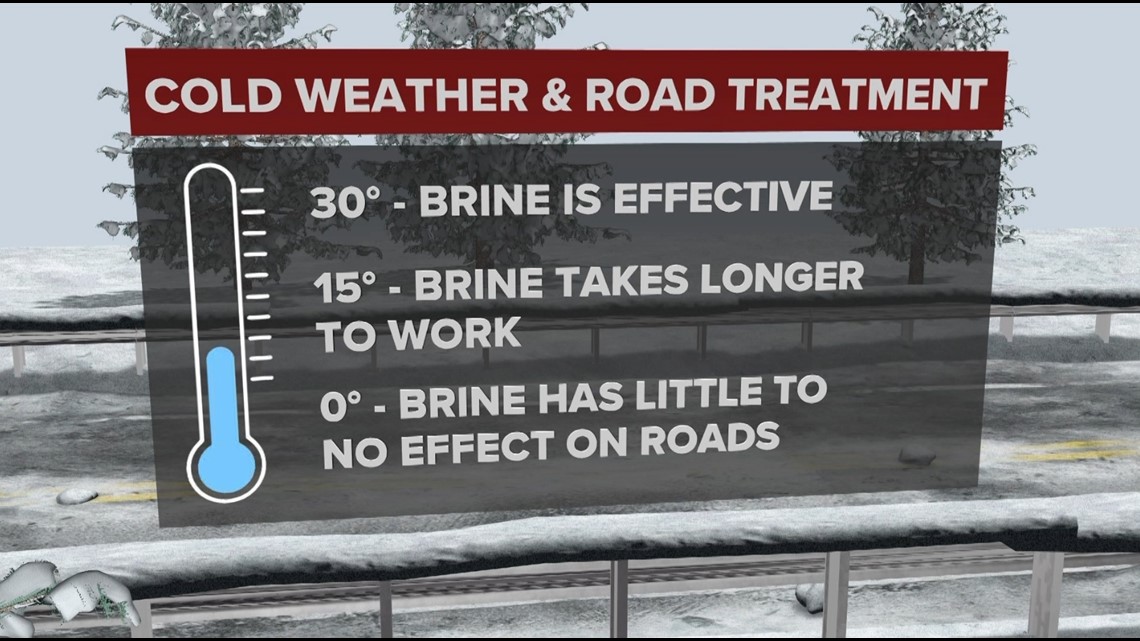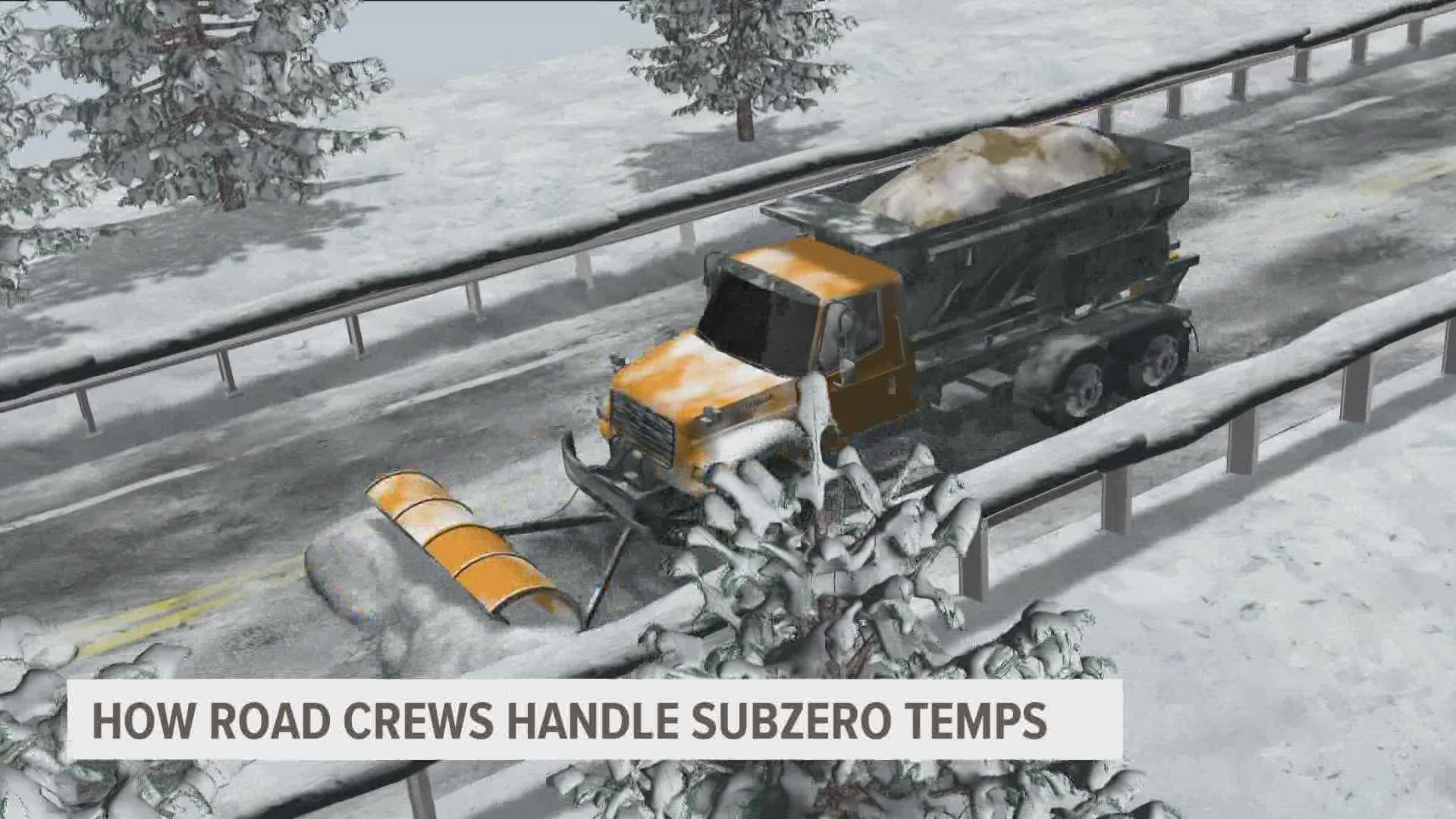DES MOINES, Iowa — Salt and a snow plow is a combination that gets along with each other almost as well as peanut butter and jelly—until temperatures drop too low.
When temperatures drop below 15 degrees, salt starts to lose its effectiveness as a melting mechanism. Then, when temperatures hit zero, it is rendered almost useless.


When the main catalyst for snow melt isn't effective, crews have to get creative.
"We start adding chemicals to it," said Jonathan Gano, director of Des Moines Public Works. "Either calcium chloride or a derivative product made from beet juice."
The Iowa Department of Transportation (DOT) uses a slightly different approach to help travelers maintain traction.
"We'll shift to a what we call a 50/50 mix, which is a mixture of salt and sand," said Craig Bargfrede, the winter operations administrator for Iowa DOT.
Bargfrede said the department has also been changing the way crews apply material to roadways this year. Instead of spraying the product across the entire lane, operators are focusing on the wheel track specifically. That allows traffic to naturally spread the material out across the roadway.
Gano said the most difficult situation is when temperatures rise above freezing, then an arctic air mass hits soon after. That causes any slush left behind from the quick warmth to turn to ice.
"We have just a few pieces of equipment that are best suited to responding to that," Gano said.
Find the latest forecast and what that means for your commute here.
WATCH | Waukee schools encourage parents to carpool, make back up plans in the face of bus driver shortage

